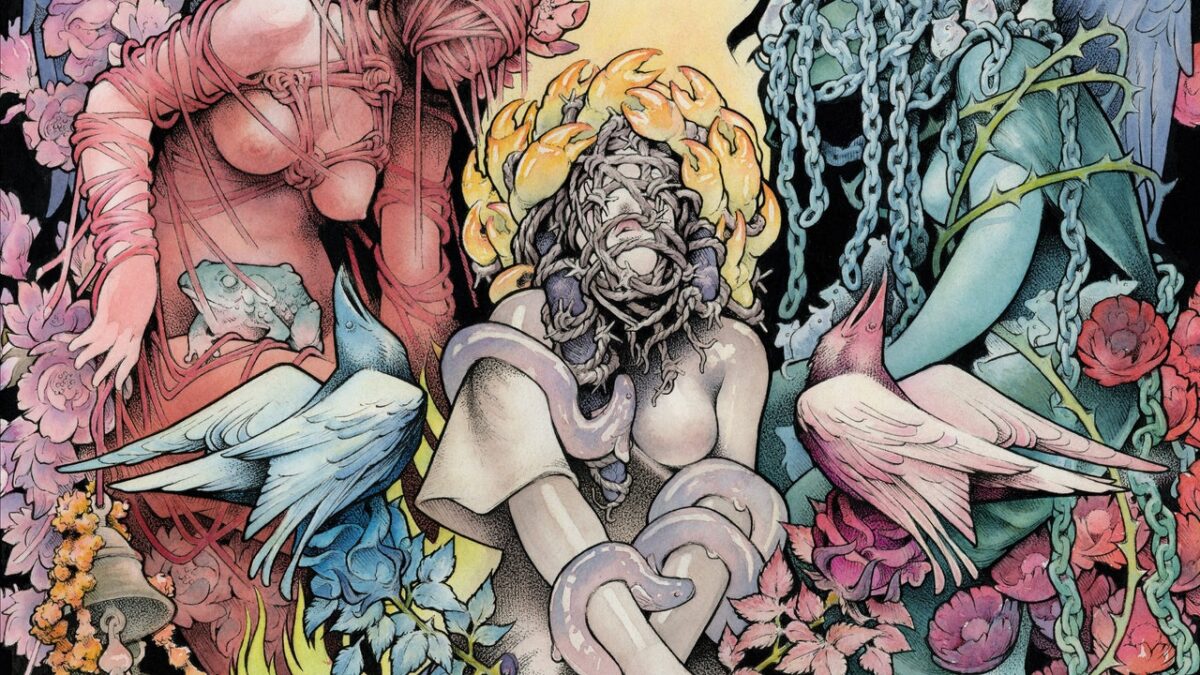
Several minutes after Gleason’s blessed solo, for instance, “Last Word” wanders into a repetitious wash of electric jazz, as if Baroness didn’t know where else to go. These individual pieces are interesting enough, sure; note for note, Baroness remain one of the most remarkable and capable bands at the intersection of heavy metal, hard rock, and psychedelia. But this is Baroness as disjointed prog, their songs now composed of rusting spare parts that don’t work together. “Anodyne” is a pouncing rock song, its four-on-the-floor march boosting a tremendous Baizley hook. As it dips and dives into assorted breakdowns, bridges, and solos, however, Baroness never capitalize on their own might, never overwhelm or even exhilarate. Then it just stops, as if both tape and ideas simply ran out.
Baroness do try a few novel sounds, but they don’t fare much better. Early on, they devote a quarter of the album to a three-song suite that may be the nadir of their career. A ringer for an overly fussy Clutch jam, “Beneath the Rose” slams into “Choir,” a laughable spoken-word tale about Satan’s mistress murmured above an elementary Motorik improvisation. The triptych ends, mercifully, with a minute-long folk farewell that might have made a lo-fi Shrimper Records mixtape in an off year. You can almost picture Baroness in their Appalachian Airbnb, throwing things at the wall just to pretend they stuck.
The songs get stronger toward the end. With its forlorn acoustic preamble slowly yielding to shout-out-loud aplomb, “Magnolia” summons a frail body slipping into extravagantly engraved armor, formidable but delicate in the way Baroness’ best songs have always been. “Under the Wheel,” written by bassist Nick Jost, takes a similar dynamic path from somber to stomping. But its textures—crosshatched dissonance, fluttering falsetto, preening basslines—feel fresh for Baroness.
Even the acoustic closer, “Bloom,” is a corrective for the six-string bauble that begins Stone, a placeholder that even Baizley admits was little more than a mood-setter. “I lost my scepter/I lost my wings,” Baizley and Gleason coo in this sweet little country hymn of mortal homecoming. “Leave me a simple life.” By the time a gentle noise collage marks its end, Stone feels like you’ve sat through a half-hour mixtape of Baroness’ past flotsam just to arrive, possibly, at a 15-minute suggestion of its future.
Baizley often contemplates oblivion and the end during Stone, with bells tolling and suns setting and pyres burning. But near the close of “Under the Wheel,” the album’s clear winner, he sings, “So take the best of us/And burn the rest,” stretching the syllables into an unexpected hook that feels optimistic, as if he looks forward to the serotiny that can come with fire. There is at least a hint of hopeful concession there, of rising above some temporary station by recognizing something’s got to change. Now they just have to set flame to the pieces of the past they no longer need.













